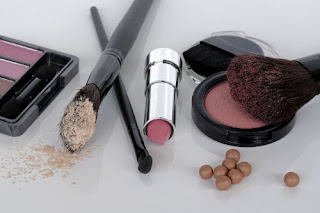With the current trend towards the use of safer beauty products for the skin, skincare – once considered a standard of Health – has come into question. After learning that the use of paraben-containing products can lead to cancer-causing endocrine disorders, brands specializing in the production of cosmetics are now seeking not to use it in the manufacture of their products; they also put a label on their product covers with the words “paraben-free”. The same applies to phthalate elements, sulfates, formaldehyde and many other components that may be dangerous to the skin and health in general.
While most beauty experts assert that their products are free of parabens and phthalates and sulfates, but it still has some products that fall under the rubric of free products “one of these harmful ingredients” thread for discussion about the availability of silicone made. Some say that silicone makes skin look healthier without having a negative impact on Human overall health. Others also say that silicone is not harmful, so there is no harm from its presence in skin care products. Below we will discuss this
First, what is silicone?
Silicones are a group of semi-liquid substances derived from silica, ” says Dr. Joshua Zeichner – a dermatologist accredited by the New York City Board of Directors of zakner Dermatology. Silica is the main component of sand, but this does not mean that silicones fall under “natural”elements. Silica must go through a fine chemical process to turn into Silicon. Silicon also forms a barrier-like layer on the skin that resists water and air entering the skin.
Silicone material is used medically to help heal wounds and improve scar places. It is also able to accelerate the healing of wounds while allowing them to breathe.”
“Silicone also has a unique texture, giving the skin care products that contain it a great texture,”says Zeichner. This sums up the key role of silicone in skin creams and moisturizers, as it facilitates their use, gives a velvety texture to the skin, and often makes the skin look plump and smooth.
Why is silicone not preferred in skin care?؟
All these benefits from using silicone look really great. But why do not many prefer to use silicones in skin care? The answer boils down to several reasons::
1. The benefits of silicone are only superficial
While silicone – filled creams and moisturizers – which are one way of skincare-may make your face look fresh and radiant at the moment, they do not contribute to your skin’s long-term health. Once the product is washed, the benefits from it are also washed away.
2. Skin care products containing silicone are difficult to wash and stored inside the pores
Silicone works to resist water; for this reason, the skin is not easily cleansed from products containing it. But the good thing here is that a good way to remove silicon particles from the pores has been invented. So, if you use one of the cosmetic products that contains silicone, clean and wash your skin twice before bedtime to keep your skin clean and silicone-free.
3. Silicon live the possibility to get rid of skin oils and dead skin cells
Silicone leads to the retention of some unhealthy substances in the skin. ” For patients with or even at risk of acne, silicone can act as a ‘barrier’ that prevents oil, dirt and dead skin cells from coming out of skin pores, increasing the problem of acne, ” says Dr. Mraz Robinson.
Dermatologists also emphasize that if you do not have acne, then there is no problem from using cosmetics containing silicone.
4. Silicone reduces the effectiveness of other product components
Silicone may prevent other product components from reaching the skin, making anything applied to the skin – after using a product containing silicone-largely useless. When using a cream or moisturizer that contains silicone, you will find that the silicone settles on the surface of the skin, allowing the other components of the cream to blend with the skin, while creating a barrier on the surface of the skin that prevents any benefit from products placed on the skin after use. That’s why Dr. Mraz Robinson asserts that, in theory, using silicone as the final step in your daily cosmetic routine might be great, but using silicones earlier could be a problem for the skin.

